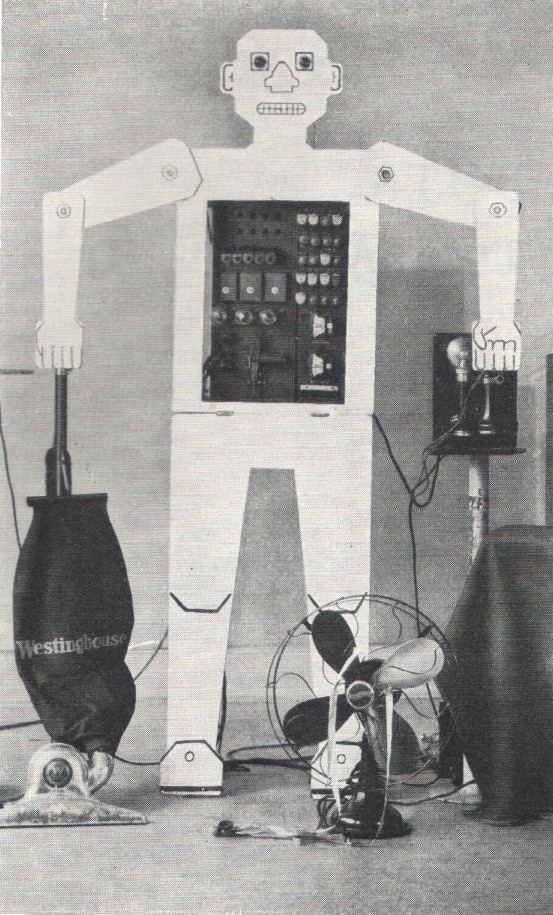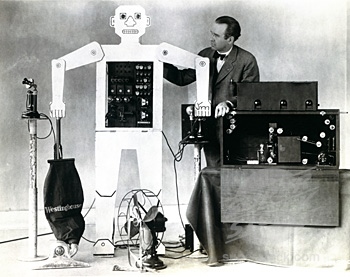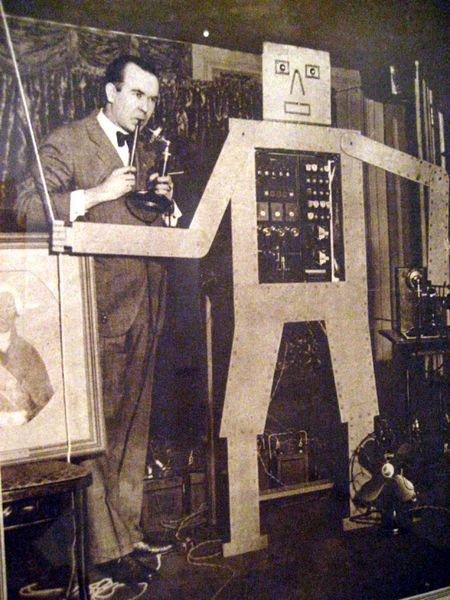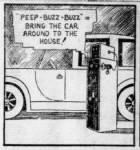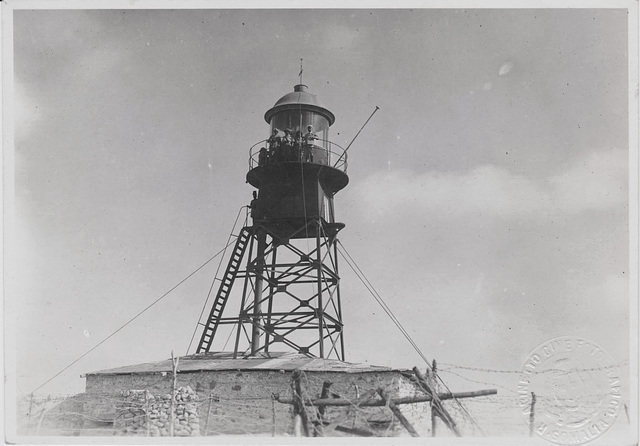When editors at the old Brooklyn Daily Eagle thought about the world’s technological future, they mostly imagined how robots would help them get drunk. That explains so much about that newspaper in those days.
In the October 30, 1927 edition, E.K. Titus wrote an article about Roy J. Wensley’s Televox robot, which received instructions via its built-in telephone. The Westinghouse inventor promised the mechanical man would be able to deliver to you bottles of scotch through pneumatic tubes, drive your car from your garage to your front door, spy on your children, vacuum your floors and warn you of plummeting stock prices. A couple of brief excerpts follow from the long piece.
_____________________________
“Peep, buzz, buzz, toot, peep!” you say into the telephone transmitter, with your tuning forks, which translated, means:
“It’s devilishly cold over here and I want a bottle of Scotch.
These simple sounds which you have emitted put the mechanical man to work. It is over in the woods of your country estate somewhere, where you keep your stock for the sake of privacy. The mechanical man hears and acts. He moves a mechanical arm to the exact box where your Scotch is segregated from the rest of your drinks, lifts it into an air-pressure tube, closes the tube and in a moment your phonograph is turned on to say:
“Here I am!”
You then open your end of the tube and there is your Scotch.
Dr. Edward E. Free, president of the New York Electrical Society, offers to install such a system for any Brooklynites provided they pay him enough money.
It Can Be Done
“It can certainly be done,” Dr. Free declared. “The mechanical man can be made fully as versatile as that. I will fix up such a system so that they can get their drinks from as far as a mile away without moving out of their apartments.
“For $40,000 or so it would be possible to rig up an apparatus through the mechanical man that would make it possible for a person to call up his garage half a mile distant, give instructions to the mechanical man and have the car at his front doorstep in a few minutes.”
The mechanical man is an electrical fellow who can hear, take orders and do hundreds of things if he is only trained in advance. He is a radio turned inside out. Instead of receiving electrical energy and transforming it into sound, as the ordinary radio receiving apparatus does, he receives sound and transforms it into electrical energy.
Roy J. Wensley, 29-year-old engineer of the Westinghouse Electric and Manufacturing Company, is the inventor.
Has “Brain Box”
Wensley’s child does not look like a man, but he has a sort of head or small box in which is located a “brain,” or directing apparatus, capable of performing 20 separate acts when he is ordered to do so. And what is better, he takes orders over the telephone!
_____________________________
Delivering a motorcar from one’s garage to one’s home would be a more expensive performance.
Mr. Johnson would lift his telephone receiver and give Televox the signal for a car.
Steer Car by Radio
Televox would then electrically start an apparatus which would open the doors of the garage, start the motor and steer the car over the garage driveway to the house.
‘You have heard of cars being steered by radio, haven’t you?’ asked Dr. Free. ‘Well, once Televox was on the job the actual work of steering could be handled by radio.’
Televox, indeed, sounds like one of the “Fairy Tales of Science” that the poet, Tennyson, talks about.
When it is remembered the Televox only responds to noise in the same way that previous apparatus has responded to the pressing of buttons setting up electrical impulses, his work does not appear so much like a fairy tale.•

